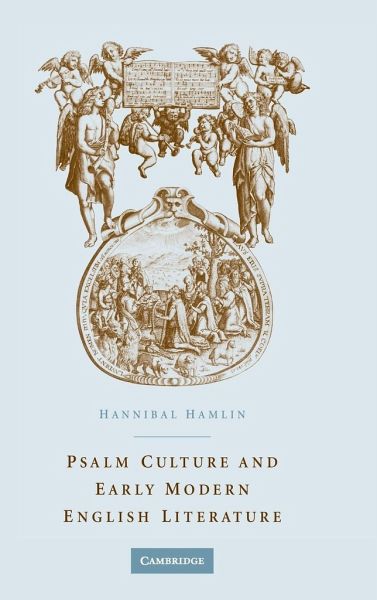
Psalm Culture and Early Modern English Literature

PAYBACK Punkte
55 °P sammeln!
Psalm Culture and Early Modern English Literature examines the powerful influence of the biblical Psalms on sixteenth- and seventeenth-century English literature. It explores the imaginative, beautiful, ingenious and sometimes ludicrous and improbable ways in which the Psalms were 'translated' from ancient Israel to Renaissance and Reformation England. No biblical book was more often or more diversely translated than the Psalms during the period. In church psalters, sophisticated metrical paraphrases, poetic adaptations, meditations, sermons, commentaries, and through biblical allusions in sec...
Psalm Culture and Early Modern English Literature examines the powerful influence of the biblical Psalms on sixteenth- and seventeenth-century English literature. It explores the imaginative, beautiful, ingenious and sometimes ludicrous and improbable ways in which the Psalms were 'translated' from ancient Israel to Renaissance and Reformation England. No biblical book was more often or more diversely translated than the Psalms during the period. In church psalters, sophisticated metrical paraphrases, poetic adaptations, meditations, sermons, commentaries, and through biblical allusions in secular poems, plays, and prose fiction, English men and women interpreted the Psalms, refashioning them according to their own personal, religious, political, or aesthetic agendas. The book focuses on literature from major writers like Shakespeare and Milton to less prominent ones like George Gascoigne, Mary Sidney Herbert and George Wither, but it also explores the adaptations of the Psalms in musical settings, emblems, works of theology and political polemic.




